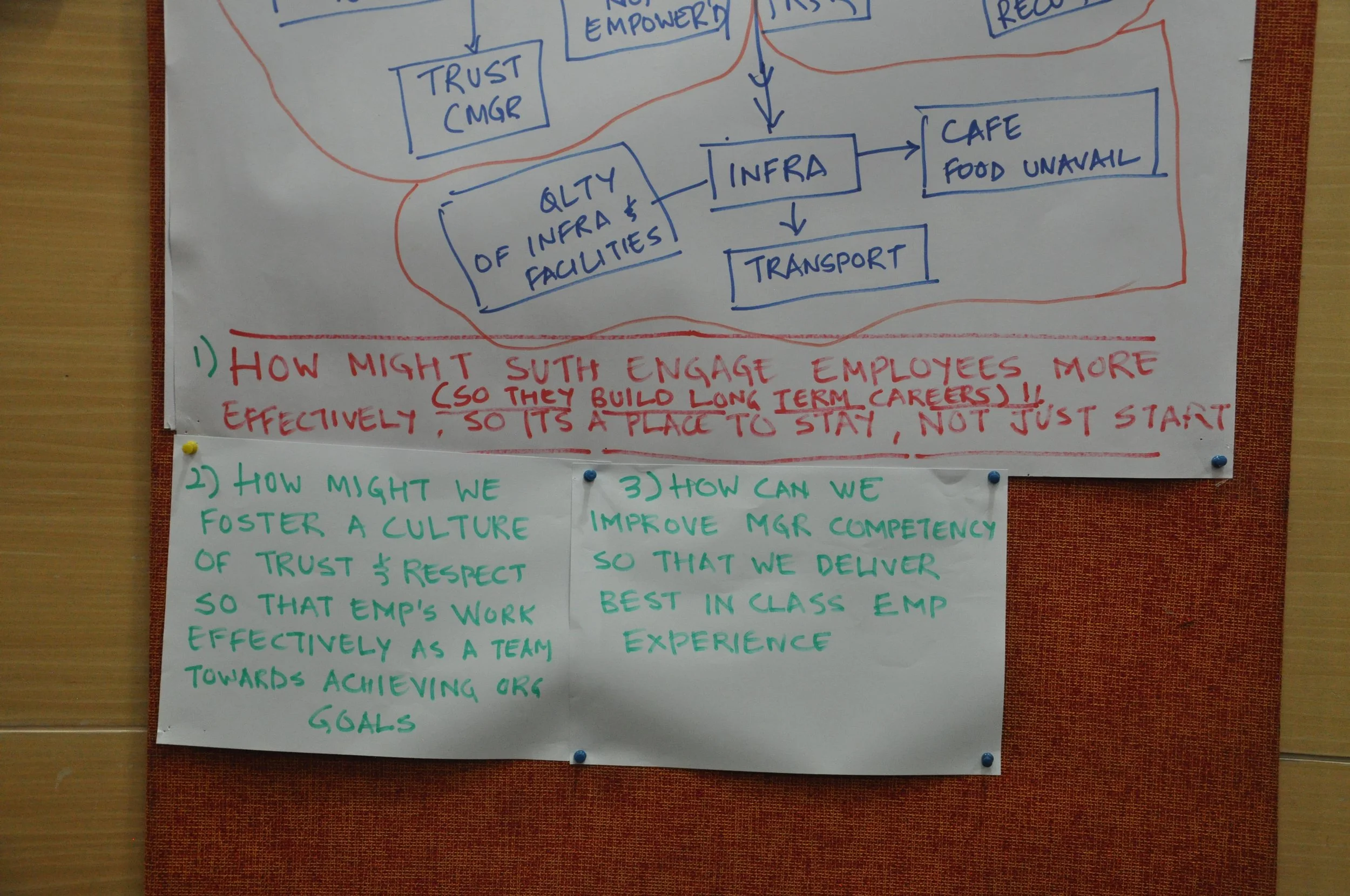Design Thinking Trainings
I led Design Thinking trainings aimed at making the methodology an integral part of the larger organization. These workshops were tailored for C-level executives around the globe and used real challenges the organization was facing to ensure relevance and impact. The focus was on improving employee experience while embedding Design Thinking principles—empathize, ideate, prototype, test, and implement—into their leadership practices.
Client (Internal)
Sutherland Global Services
“How might we improve the employee experience?”
This question became the central challenge for participants to address, providing a tangible way to apply Design Thinking within their organizational context.
Process
Pre-Training Preparation
Created customized materials to guide participants, including:
A discussion guide for conducting employee interviews.
An observation guide for field research.
A reference for ideation methodologies to overcome creative blocks.
Designed the facilitation presentation, featuring tips, tricks, and real-life examples to inspire actionable learning.
Training Structure
Day 1: Research through interviews and observations to identify core challenges.
Day 2: Define the problem through "How Might We" questions, ideate solutions, prototype, and test ideas.
Day 3: Iterate based on feedback, retest, and prepare final presentations.
Day 4: Deliver polished presentations to demonstrate solutions and learnings.
Facilitation Style
Focused on a "learn by doing" approach, empowering participants to engage deeply with the methodology.
Addressed challenges in real-time, iterating on activities and tools during the sessions to enhance outcomes.
Impact
Participants reported increased confidence in applying Design Thinking to organizational challenges.
The training’s structure and approach were shared as follow-up materials, enabling teams to continue using these methods independently.
Demonstrated how iterative processes and empathy could improve employee engagement and organizational performance.
Reflections & Learnings
The importance of adapting the training based on real-time participant feedback.
Leveraging Design Thinking principles, such as iteration and collaboration, to enhance the learning experience.



